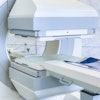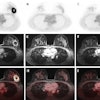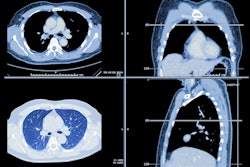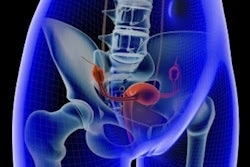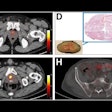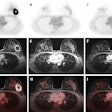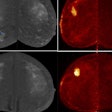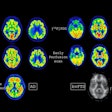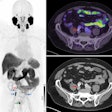Serac Healthcare is highlighting interim results from a study regarding its endometriosis-targeted technetium-99m (Tc-99m) maraciclatide radiotracer at the 7th European Endometriosis Congress, which took place in Bucharest, Romania, from 6 to 8 June.
The company is investigating the use of SPECT/CT Tc-99m maraciclatide as a noninvasive test for visualizing early-stage endometriosis as an alternative to standard surgery. A presentation on 7 June added to preliminary findings from March and to what previous researchers have learned about detecting endometriosis-expressed integrins using Tc-99m maraciclatide, according to Serac and its research partner, Nuffield Department of Women’s and Reproductive Health at the University of Oxford in the U.K.
In a poster presentation, Dr. Tatjana Gibbons of the University of Oxford summarized results from the first 10 patients with known or suspected endometriosis. The team imaged study participants with a SPECT-CT camera; patients subsequently underwent planned laparoscopic surgery to establish the presence, absence, and location of endometriotic lesions.
Serac and the University of Oxford noted three findings in relation to the three endometriosis subtypes:
- Tc-99m maraciclatide correctly identified superficial peritoneal endometriosis in those who went on to have early-stage endometriosis confirmed by laparoscopy.
- Superficial peritoneal endometriosis, which accounts for 80% of all endometriosis diagnoses, was the most common visualized lesion, and it was identified in the thin peritoneum lining which covers the abdomen and pelvis.
- Deep disease and endometrioma were also identified by Tc-99m maraciclatide and correlated with findings from laparoscopy.
The Tc-99m maraciclatide radiotracer binds to the cell adhesion protein alpha-v beta-3 integrin and images angiogenesis which is known to be critical to the establishment and growth of endometriotic lesions, according to the researchers.
“A new diagnostic tool is urgently needed in this painful disease which often impacts fertility," said lead investigator Prof. Christian Becker, of the University of Oxford, in a statement released by the congress. "These interim results are highly encouraging; we look forward to completing the study and the full analysis of its findings."
The ongoing study will recruit up to 25 patients and is expected to be completed later this year.


